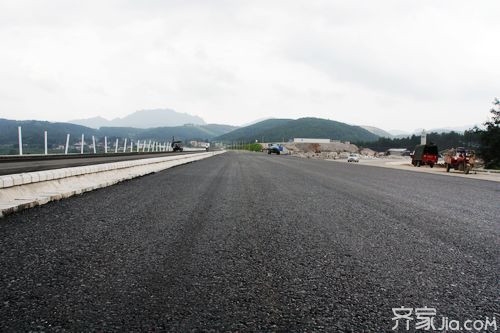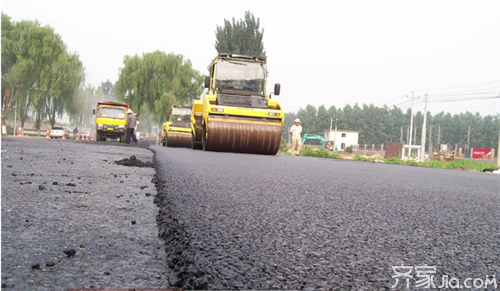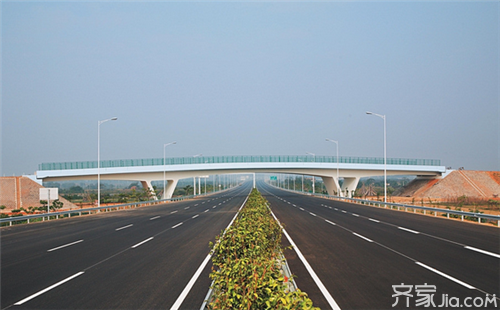Asphalt is a road surface structural cementing material widely used in road engineering. It can be built into asphalt pavements with different structures in proportion to different mineral materials. What are the classifications of asphalt? Do you want to know? If you are not sure, quickly go down to see the asphalt classification .

[Asphalt classification which]
Asphalt can be mainly divided into three types: coal tar pitch, petroleum pitch and natural asphalt:
I. Coal tar pitch: Coal tar pitch is a by-product of coking, that is, black substances that remain in the distillation still after tar distillation. It differs from the refined tar only in terms of its physical properties and has no obvious boundary. The general method of division is to provide tar below 26.7°C (cubic block method) and asphalt above 26.7°C. Coal tar pitch mainly contains hardly volatile cerium, phenanthrene, fluorene, and the like. These substances are toxic, and because of the different content of these components, the properties of coal tar pitch are different. The change of temperature has a great influence on coal tar pitch, which is easy to be brittle in winter and easy to soften in summer. When heated, it has a special odor. After heating to 260°C for 5 hours, the cesium, phenanthrene, fluorene, and other components contained in it will evaporate.
Second, petroleum asphalt: petroleum asphalt is the residue after distillation of crude oil. According to the degree of refinement, liquid, semi-solid, or solid at room temperature. Petroleum asphalt is black and glossy with a high temperature sensitivity. Since it was once distilled to above 400°C in the production process, it contains very little volatile components, but there may still be polymer hydrocarbons that have not been volatilized. These substances are more or less harmful to human health.
Third, natural asphalt: natural asphalt is stored in the ground, some form ore deposits on the surface of the earth's crust. Most of this bitumen is naturally evaporated and oxidized and generally does not contain any toxins.
ã€Selection of Petroleum Asphalt】

In the selection of bituminous materials, different types and grades of bitumen should be selected according to the nature of the project (houses, roads, and anti-corrosion) and the local climatic conditions and the site of the project (roofing, underground).
1. There are more road petroleum bituminous grades, which are mainly used for road pavement or workshop ground and other projects. They are usually mixed into asphalt concrete, asphalt mixture, or asphalt mortar. Road asphalt can also be used for sealing materials, adhesives and asphalt coatings. In this case, road asphalt with high viscosity and high softening point, such as 60A, should be used.
2, the construction of asphalt asphalt viscosity, good heat resistance, but the plasticity is small, mainly used for the manufacture of linoleum, oil paper, waterproof coating and asphalt rubber. Most of them are used in roofing and underground waterproofing, trench waterproofing, anti-corrosion and pipeline anti-corrosion projects. For roof waterproofing, care should be taken to prevent excessive softening. According to the high-temperature season test, the surface temperature of the bituminous roof is 25°C~30°C higher than the local maximum temperature. In order to avoid the summer run-off, the softening point of the roofing bituminous material should be more than 20°C higher than the maximum temperature that the roof can reach under the local temperature. For example, the asphalt roof temperature in a certain area can reach 65°C, and the softening point of asphalt used should be above 85°C. However, the softening point should not be selected too high, otherwise the low temperature in winter is prone to hard brittle or even cracking. For some sites that are not easily affected by temperature, the larger grade bitumen can be used.

3, waterproof moisture-proof bitumen has good temperature stability, especially suitable for linoleum coating materials and construction roof and underground waterproof adhesive material. Among them, No. 3 asphalt is generally sensitive to temperature and has a soft texture. It is used for waterproofing indoor and underground structures under normal temperatures. The 4th bitumen is less sensitive to temperature and is used for gentle slope roof waterproofing in general areas. No. 5 asphalt has low temperature sensitivity and is used for waterproofing of roofs in areas where roofs are exposed or where temperatures are high. Bitumen No. 6 has the lowest temperature sensitivity and soft texture. It is mainly used for roofing and other waterproofing projects in cold areas except for normal areas.
4. Ordinary petroleum asphalt contains more wax, and its general content is 5% for large days, and some are as high as 20% or more (called multi-wax petroleum asphalt). Therefore, the temperature sensitivity is large, so it should not be used alone in the project, but only with other Kinds of petroleum asphalt are mixed and used.

Xiao Bian concludes: We introduced the classification of asphalt for everyone, and we hope to help everyone. For more relevant knowledge, please continue to pay attention to this website information platform. Follow-up will present more exciting content for everyone.
How to avoid decoration contract trap
The LED tubes emergency kit is making your LED tubes into Emergency Mode, ideal for LED tubes 3-40W Full power emergency output wattage for LED emergency lighting 60-180mins. Automatic lighting up when main power failures. Suitable for LED fitting with external led driver and internal driver. Widely using for parking lot, office, building, warehouse, school, hospital, workshop etc.
Emergency Led Tube,Led Tubes Emergency,Led Tubes Emergency Kit,led tube light with battery
Foshan Nai An Lighting Electric Co.,ltd , https://www.twinspotlights.com